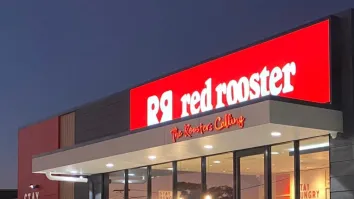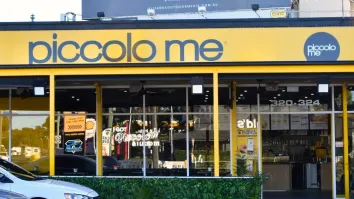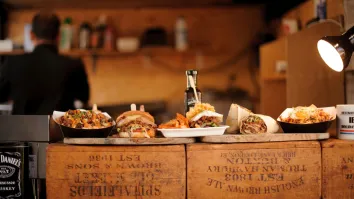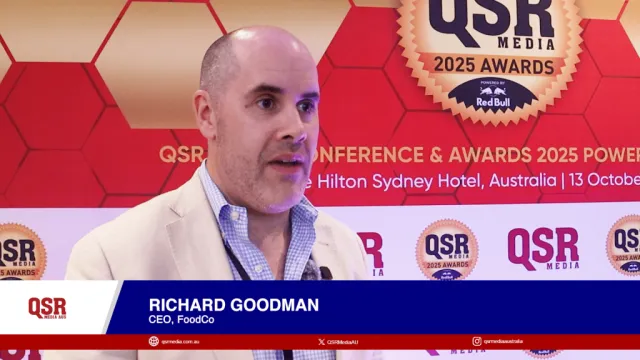The inbound packaging dilemma: how QSRs can deal with China's National Sword Policy
Learn how reusable packaging can play a much larger role.
Quick service restaurants are the masters of the efficient meal, which is all underpinned by convenience. Efficiency is key to operations.
For this reason, it’s important for QSRs to understand the impact of China’s National Sword policy on their operations. This policy has disrupted just about every value chain in Australia by implementing much stricter waste importation controls to reduce pollution in their country. So, what has China’s National Sword policy got to do with my burger?
How disposing of waste and recycling used to be
The majority of fresh produce used in the QSR industry is packed in single use cardboard boxes whose only journey is to the restaurant storage area where, once unpacked, it is then waste and needs to be handled, crushed and taken to the recycling compactor, which, in many cases may be a long trip away from the service area.
At this point, recycling contractors would recover valuable materials like cardboard and sell it. Since 1980, the most reliable customer for recycled waste has been China and until recently, Australia was exporting approximately 60% of paper and cardboard waste and 20% of its plastic waste to China.
MRA Consulting Group states that Australia’s single use cardboard waste equates to about 1.1 million tonnes of waste each year and 638,000 tonnes of this was bound for China. China’s growing economy had a huge appetite for raw materials including recycled waste from developed economies until the cost of the contamination rate become so problematic they were forced make a change.
The dilemma
This quick service export recycling avenue has now closed, presenting a dilemma for recycling contractors and their customers. Whilst some other South East Asian economies are taking waste for recycling, according to the Australian Packaging Covenant Organisation (APCO), how this option will work is as yet untested. Is this a temporary option? Will the costs be prohibitive for other countries to recycle too? Will the requirements for less contaminated waste spread to other importers?
The short-term impact on waste sorting facilities locally has had a sudden drop in demand for paper and cardboard, which MRA Consulting Group estimates will be a direct loss of $70-110/tonnes of material. In the immediate term, all waste sorting facilities will have to “secure higher front gate revenue or go into liquidation.” For some local facilitators, this has resulted in an increased cost passed on to customers.
Industries with a heavy dependency on single use packaging like cardboard will feel the pinch as costs are further passed back up the value chain industry wide. For low margin industries like QSRs, this will start to impact their bottom line. Impacts on brand reputational risks need to also be considered.
The fresh supply chain’s low hanging fruit and veg
The Australian Council of Recycling (ACOR) believes that the China National Sword offers a once in a generation opportunity to “reset” Australia’s recycling systems to achieve improved resource efficiency and enhanced economic outcomes. But not all the answers lie in ‘end-of-pipe’ recycling solutions which ACOR says will require significant time and sustained investments in local recycling and waste processing facilities.
What can be done now?
Reusable packaging can play a much larger role in industries like QSRs that are currently reliant on single use cardboard for most of their inbound supply chain. Through collaboration, growers, processors, and distributors can eliminate one-way packaging by utilising reusable platforms, like crates, to deliver restaurant supplies. Other food and beverage industry supply chains have been enjoying the benefits of these for many years. The payback for QSRs and the environment is substantial..
About CHEP:
CHEP Australia has been providing reusable platforms to customers for over sixty years. Its reusable plastic containers (RPC’s), bins, beverage trays and pallets are the most efficient and sustainable way to move, store and protect goods across a wide range of supply chains. See how you can benefit from an Environmental Impact Analysis by clicking here. See how Reusable Plastic Containers work in supply chains here.
For more information, visit www.chep.com.
Media Contact:
Kathryn Crofts
Communications Manager, CHEP Australia
Phone: 02 9856 2547
Mobile: 0437108844
Email: [email protected]

























